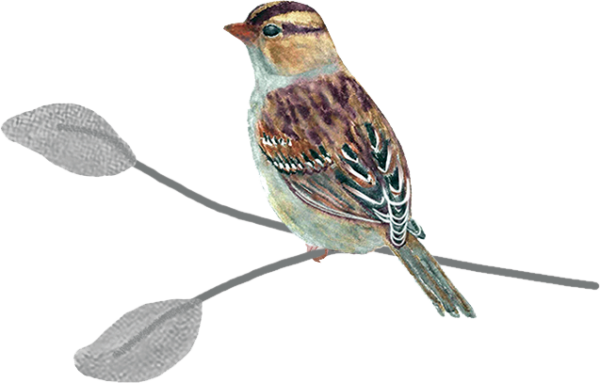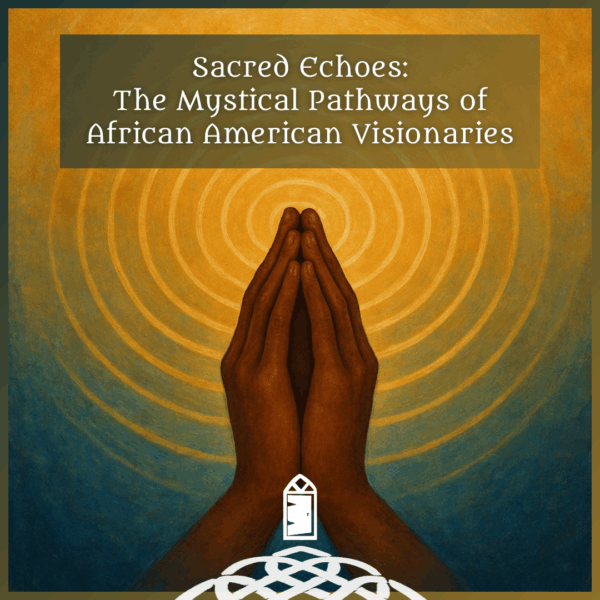Last spring we launched a series with poets whose work we love and want to feature and will continue it moving forward.
Our next poet is Bethany Reid whose work is centered on memory, caregiving, loss and wings. Read her poetry and discover more about the connections she makes between poetry and the sacred. Listen to her read “Sparrow” below.
Sparrow
What could the Bible mean
when it says no sparrow falls
without God’s notice?
They do fall.
“The Bible”: that’s too impersonal.
It was some writer of the New Testament,
some Hebrew poet turned Christian
who chose “sparrow,” a metaphor
for the least things, the small
and innumerable mouths
at the breast of the world.
Maybe our poet had a daughter who carried to him
in her cupped hands a baby sparrow.
Maybe they tried to keep it alive
on sugar water and cat food,
and when they failed, he wept,
not knowing how to teach a child
that life is worth the trouble, and the grief.
This morning, at our house,
the sparrow hopped in his shoe box, chirping,
and my daughter leaned over him,
her hair the same brown as his feathers.
“He thinks I’m his mom,” she told me.
I am her mom. When the sparrow dies
I’m the one she brings him to,
the life now seeped from him,
his body no more than a clod of dirt.
Black beads of his eyes dulled.
Wings stilled. Feet brittle as twigs.
We bury him in the backyard
beside the old cat and a mole we found last fall.
And why commending his body to the earth
should comfort us, God only knows.
?
Themes of Her Work
My father’s unexpected death in 2010 and my mother’s subsequent journey through Alzheimer’s, a massive stroke in 2014, and her death in the fall of 2018 have immersed me in themes of memory and caregiving and loss. My mother’s lost memories, my childhood memories of growing up on a farm (in the house my mother was born in) and in our Pentecostal church where my father served on the board and as Deacon – that’s what I’m writing about now. Plus, a weird sub-theme of wings, which I can’t seem to avoid.
Legs Thin as Branches
The muse when it is new
wobbles on legs thin as branches.
It bleats and mewls,
not a horse to be ridden,
only another baby
needing milk and love.
You have to believe in what isn’t there
a long time before it begins
to be there. Years pass
before you dare put a saddle
on its back, before you dare
climb up and weigh the reins
in your hands. When it is new,
the muse teaches you
to practice faith in the music
of what you cannot hear,
to make art of what you cannot see.
When the day dawns
for you to trust your weight
to it, sit up straight. Gather all
that its long becoming
has brought forth in you.
Look steadily in the direction
you must go.
Poetry and the Sacred
Writing every day is an important part of my practice–something I managed even when my daughters were young. I consider writing in my journal (especially on the busiest days) to be as important to my well-being as brushing my teeth. But I have not always thought of writing as part of my spiritual practice. Writing a poem used to feel like a guilty pleasure, at best, and maybe like outright theft from “more important things.” Then, a number of years ago, I was asked to lead a women’s church retreat and, though the facilitator said it would be a cinch – I was terrified. I had been teaching writing and literature for at least a decade, but the thought of sharing my spiritual journey through poems, and inspiring participants to write poems about their own spiritual journey? That just didn’t seem very likely. Luckily, I decided to talk the invitation over with my pastor. Secular teaching, I could do, I told him, but sacred? I really didn’t think I was qualified. My pastor (a lovely man, with a gentle Irish brogue) said, “Oh, Bethany, don’t you know? It’s all sacred.”
The retreat was great, by the way. No credit to me, but to the participants (mostly older women) who were so generous and kind. They wrote some really wonderful poems that day, and they inspired me.
Later I wrote down my pastor’s words, “It’s all sacred,” and framed them. They used to sit beside my desk where I planned my classes and graded papers. Now that I’m retired from full-time teaching, they sit beside my writing desk, reminding me (of course I frequently need reminding) of not only why I write poetry, but why I do anything. It’s all sacred.
I Could Love You That Way
The way a woman cleans house, tying her hair
in a kerchief, knocking down cobwebs
with a broom. All day gathering clothes
and toys and books from beneath the beds.
Vacuuming under the couch cushions,
scrubbing the drains, polishing
the fixtures. I could love you that way,
methodically, thoroughly, offering my body
at day’s end as if it were a house,
as if it were a place for you to lie down.
The Soul Has Seasons
Like blackberry brambles the soul has seasons
when its leaves grow scarce.
Even then, a smallish body will find shelter there,
deer mouse chittering, or the tiny wren, piping its song.
For what, if not that singing, does the soul dare
a new season’s greening?
About Bethany Reid
Bethany Reid’s two most recent books are Sparrow, which won the 2012 Gell Poetry Prize, and Body My House (2018), published by Seattle’s Goldfish Press. Her poems have appeared in numerous journals, including Blackbird, Broken Bridge Review, Cairn, Calyx, The MacGuffin, Pontoon, and Prairie Schooner, and are also included in the recent anthologies, For Love of Orcas and Footbridge Above the Falls: Poems by 48 Northwest Poets. Bethany lives and writes in Edmonds, Washington, and blogs about all of it at BethanyAReid.com.
Dreaming of Stones
Christine Valters Paintner‘s new collection of poems Dreaming of Stones has just been published by Paraclete Press.
The poems in Dreaming of Stones are about what endures: hope and desire, changing seasons, wild places, love, and the wisdom of mystics. Inspired by the poet’s time living in Ireland these readings invite you into deeper ways of seeing the world. They have an incantational quality. Drawing on her commitment as a Benedictine oblate, the poems arise out of a practice of sitting in silence and lectio divina, in which life becomes the holy text.



